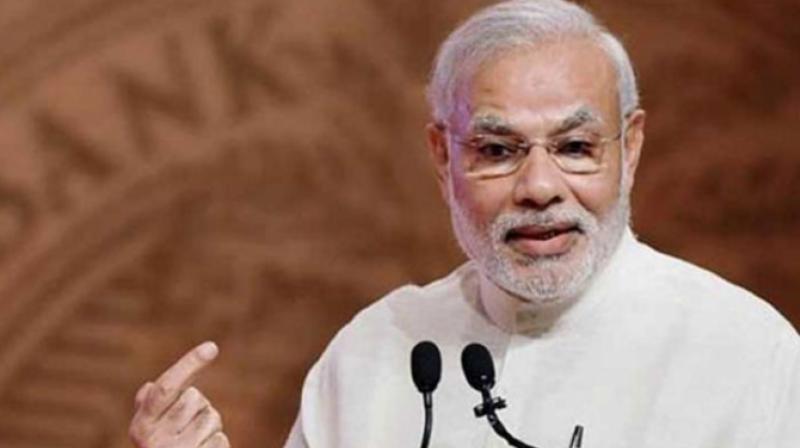1 daughter equal to 10 sons, says Modi
Modi said women were not only moving ahead in every field but leading there as well.

New Delhi: Prime Minister Narendra Modi, in his first Mann Ki Baat radio programme of 2018, lauded woman power and spoke on women empowerment, on Sunday.
Quoting scriptures the Prime Minister said, “Today we talk about Beti Bachao Beti Padhao, but ages ago, our holy books said that one daughter is worth 10 sons.”
Highlighting a letter posted on his app by a citizen, he pointed out that astronaut Kalpana Chawla’s death anniversary falls on February 1 and her life had inspired lakhs of young people.
Quoting the letter, which also mentioned defence minister Nirmala Sitharaman’s sortie in fighter aircraft Sukhoi 30, he said women were not only moving ahead in every field but leading there as well.
The Prime Minister also referred to President Ram Nath Kovind’s initiative to meet a group of “extraordinary” women, who were all path-breakers, and said women had broken through orthodoxy to achieve “extraordinary success”.
Transparency in Padma awards: Modi
President Ram Nath Kovind had recently met India’s first woman merchant Navy captain, the first woman passenger train driver and fire fighter, among others, he said, calling them the “first ladies” in their respective fields.
“Women are playing a significant role in the positive changes happening in the country,” he said, and referred to the performance of an all-woman BSF biker contingent at the Republic Day parade.
He referred to the Matunga Railway Station in Mumbai which had an all-woman staff. The Prime Minister referred to the world’s longest human chain of 13,000km formed in Bihar against dowry and child marriage and said it was imperative that society was rid of such ills.
He said said his government had transformed the process for selecting Padma award winners and common people were now being honoured because the emphasis was no longer on the name of a nominee, but on the work done.
Mr Modi said the awards are being bestowed on people “who do not live in big cities and are not visible in newspapers and TV”.
“Making the (nomination) process online has led to transparency. The selection process for these awards has undergone a transformation,” he said.
“If you look at these winners, you will feel proud that such kind of people live in society and will also naturally feel proud that they are getting this recognition without any sifarish (recommendation),” he said.

